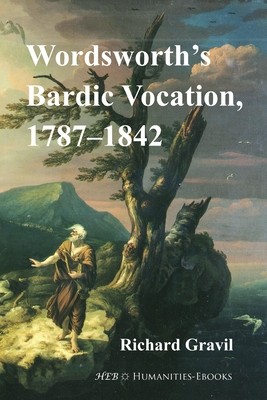
- We will send in 10–14 business days.
- Author: Richard Gravil
- Publisher: Humanities-eBooks
- ISBN-10: 1847603459
- ISBN-13: 9781847603456
- Format: 15.6 x 23.4 x 2.2 cm, minkšti viršeliai
- Language: English
- SAVE -10% with code: EXTRA
Reviews
Description
Wordsworth's Bardic Vocation, the most comprehensive critical study of the poet since the 1960s, presents the poet as balladist, sonneteer, minstrel, elegist, prophet of nature, and national bard. The book argues that Wordsworth's uniquely various oeuvre is unified by his sense of bardic vocation. Like Walt Whitman or the bards of Cumbria, Wordsworth sees himself as 'the people's remembrancer'. Like them, he sings of nature and endurance, laments the fallen, fosters national independence and liberty. His task is to reconcile in one society 'the living and the dead' and to nurture both 'the people' and 'the kind'. Review Comment: 'This erudite exposition, profligate with its ideas ... succeeds as few others have done in apprehending Wordsworth's career holistically, incorporating all its diversities and apparent inconsistencies into a unified vision. It justifies fully the notion proposed by Hughes and Heaney that he was England's last national poet.' - Duncan Wu, Review of English Studies
EXTRA 10 % discount with code: EXTRA
The promotion ends in 21d.18:37:59
The discount code is valid when purchasing from 10 €. Discounts do not stack.
- Author: Richard Gravil
- Publisher: Humanities-eBooks
- ISBN-10: 1847603459
- ISBN-13: 9781847603456
- Format: 15.6 x 23.4 x 2.2 cm, minkšti viršeliai
- Language: English English
Wordsworth's Bardic Vocation, the most comprehensive critical study of the poet since the 1960s, presents the poet as balladist, sonneteer, minstrel, elegist, prophet of nature, and national bard. The book argues that Wordsworth's uniquely various oeuvre is unified by his sense of bardic vocation. Like Walt Whitman or the bards of Cumbria, Wordsworth sees himself as 'the people's remembrancer'. Like them, he sings of nature and endurance, laments the fallen, fosters national independence and liberty. His task is to reconcile in one society 'the living and the dead' and to nurture both 'the people' and 'the kind'. Review Comment: 'This erudite exposition, profligate with its ideas ... succeeds as few others have done in apprehending Wordsworth's career holistically, incorporating all its diversities and apparent inconsistencies into a unified vision. It justifies fully the notion proposed by Hughes and Heaney that he was England's last national poet.' - Duncan Wu, Review of English Studies


Reviews